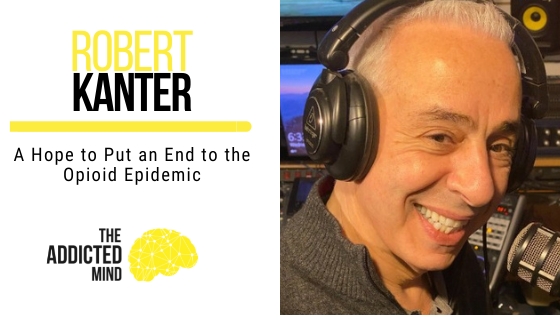On this episode, Duane speaks with Robert Kanter, an international recovery advocate addressing the opioid epidemic. Today, he talks about his advocacy work with the opioid epidemic. He also tells his own story of recovery from alcohol and substance use disorders and how his daughter’s struggles became the genesis of his advocacy work.
In 2020, overdose fatalities hit 93,000 in the US. This was a record-breaking amount with COVID exacerbating the existing opioid crisis. It was an epidemic within the pandemic. Just to give you context of how serious this problem is, Robert says that we lost more people last year to overdose fatalities than we lost in the entire Vietnam War.
Robert is in recovery from alcohol use disorder and substance use disorder and has now been sober for many years. Three years ago, his daughter almost overdosed on opiates and heroin, locked in an apartment with a drug-dealing boyfriend. Now, she just celebrated three years of sobriety.
As a father, Robert felt completely powerless to do anything. This was a big part of what pushed him into the advocacy work he does now: helping other families who are in the same situation as he was. Hear more about his passion for getting the word out there and how he’s working to hold some companies and individuals accountable who are responsible for this opioid epidemic.
There is so much stigma around people who struggle with addiction so they often get dismissed by other people, their loved ones, and society in general. Therefore, it’s so important that we show the humanity behind it and realize that these people are not just numbers. They’re people who have families.
One of the reasons this podcast exists is to change that stigma around addiction. Robert coming on the show today to talk about this brings a human face to it all.
In this episode, you will hear:
- How the opioid epidemic started and who’s responsible
- The pill dumping in West Virginia as a landmark trial
- The role of the FDA in this whole crisis
- The Portugal model of harm reduction
- How people struggling with addiction are dissociated from their families
- The role of the media in reversing the epidemic
Key Quotes:
[02:25] – “There were 88,000 overdose fatalities in this country. It was revised up to 93,000, which is a record because you have the perfect storm of the pandemic, and you have fentanyl on the street…an epidemic within a pandemic.”
[03:19] – “We lost more people last year to overdose fatalities than we lost in the entire Vietnam War.”
[04:14] – “It’s not like people are just going to stop being addicted. Money has to be there for treatment programs.”
[05:14] – “My vote for the real entity that really caused the epidemic is the Food and Drug Administration because they are the gatekeepers. They’re the ones that are supposed to protect the American public.”
[11:05] – “It’s a step in the right direction. If these other lawsuits go through quickly, now, the money for treatment around the country is really starting to open up.”
[20:56] – “You have to have the media and a consistent basis, covering the positive things that are happening.”
[23:43] – “We understand your pain and your suffering. And we have resources for you. And we have resources for your families. This is a family illness, the people we hurt the most are the people we love the most.”
[30:32] – “The more people that lose loved ones, the more these people are then going to get involved and really understand what happened. That’s one of the unfortunate silver linings of all this.”
Subscribe and Review
Have you subscribed to our podcast? We’d love for you to subscribe if you haven’t yet.
We’d love it even more if you could drop a review or 5-star rating over on Apple Podcasts. Simply select “Ratings and Reviews” and “Write a Review” then a quick line with your favorite part of the episode. It only takes a second and it helps spread the word about the podcast.
If you really enjoyed this episode, we’ve created a PDF that has all of the key information for you from the episode. Just fill in your information below to download it.

